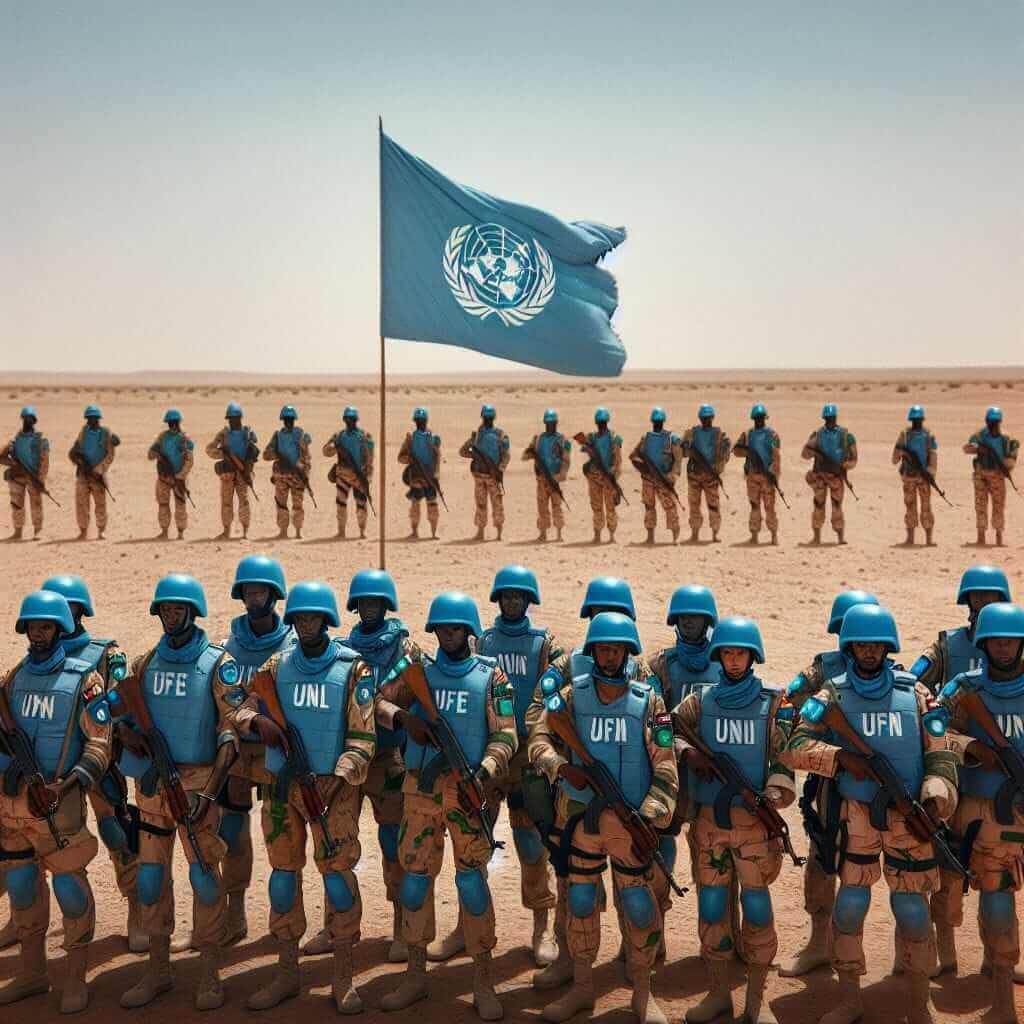The role of international organizations in promoting peace is a topic frequently discussed and debated in international relations. It is a common theme that appears in the IELTS Writing Task 2, requiring test-takers to analyze the effectiveness of these organizations and their impact on global peace. This essay will delve into this topic, providing a sample answer, vocabulary analysis, and writing tips to help you excel in your IELTS exam.
IELTS Writing Task 2 Sample Question
Some people believe that international organizations have a significant role in promoting peace. Others argue that they are ineffective and unnecessary. Discuss both views and give your opinion.
Analysis of the Question
This question presents a classic “discuss both views and give your opinion” format. You are expected to:
- Present both sides of the argument: Acknowledge the perspectives of those who believe in the importance of international organizations for peace and those who criticize their effectiveness.
- Provide your opinion: State your stance on the issue, clearly indicating whether you agree with, disagree with, or partially agree with the presented views.
- Support your arguments: Provide logical reasoning and relevant examples to back up your claims.
Sample Answer
International organizations, with their global reach and mandate for cooperation, are often seen as key actors in the pursuit of peace. While their contributions are undeniable, their effectiveness and necessity remain a subject of debate.
Proponents of international organizations argue that they play a crucial role in preventing and resolving conflicts. The United Nations, for example, provides a platform for dialogue and diplomacy, facilitating communication between conflicting parties. Its peacekeeping missions, deployed to various conflict zones, help to maintain ceasefires and protect civilians. Moreover, organizations like the International Court of Justice contribute to upholding international law, promoting accountability, and deterring future conflicts.
However, critics contend that international organizations are often hampered by bureaucracy, political bias, and a lack of enforcement power. They point to instances where organizations have failed to prevent or stop atrocities, such as the Rwandan genocide or the ongoing conflict in Syria. Moreover, the influence of powerful states within these organizations is often seen as undermining their impartiality and effectiveness.
 United Nations Peacekeepers
United Nations Peacekeepers
In conclusion, while international organizations are not without their limitations, their role in promoting peace should not be underestimated. Their ability to foster dialogue, mediate disputes, and provide humanitarian assistance remains vital in a world rife with conflict. However, to enhance their effectiveness, reforms are needed to address issues of transparency, accountability, and representation. Ultimately, a concerted effort from individual nations, along with stronger and more effective international institutions, is essential to achieving lasting peace. (Word Count: 273 words)
Writing Tips
- Use topic-specific vocabulary: Incorporate words like “diplomacy,” “conflict resolution,” “humanitarian intervention,” “international law,” and “sanctions” to demonstrate your understanding of the topic.
- Structure your essay logically: Use clear paragraphs to present each side of the argument and your opinion.
- Provide relevant examples: Support your arguments with real-world examples of international organizations and their actions.
- Maintain a neutral tone: Even when presenting your opinion, avoid using overly strong language or personal biases.
Difficult Vocabulary
- Mandate (noun /ˈmæn.deɪt/): An official order or commission to do something.
- Proponent (noun /prəˈpoʊ.nənt/): A person who advocates a theory, proposal, or project.
- Diplomacy (noun /dɪˈploʊ.mə.si/): The profession, activity, or skill of managing international relations, typically by a country’s representatives abroad.
- Ceasefire (noun /ˈsiːs.faɪr/): An agreement to stop fighting, especially during a war.
- Atrocities (noun /əˈtrɒs.ə.tiz/): Extremely wicked or cruel acts, typically involving physical violence or injury.
- Genocide (noun /ˈdʒen.ə.saɪd/): The deliberate killing of a large number of people from a particular ethnic group or nation, typically with the aim of destroying it entirely.
- Bureaucracy (noun /bjʊˈrɒk.rə.si/): A system of government in which most of the important decisions are made by state officials rather than by elected representatives.
- Impartiality (noun /ɪmˌpɑː.ʃiˈæl.ə.ti/): Treating all rivals or disputants equally.
- Humanitarian (adjective /hjuːˌmæn.ɪˈteə.ri.ən/): Concerned with or seeking to promote human welfare.
- Concerted (adjective /kənˈsɜː.tɪd/): Jointly arranged or carried out; coordinated.
Conclusion
Understanding the role of international organizations in promoting peace is crucial for the IELTS Writing Task 2. By analyzing the topic, practicing your writing skills, and expanding your vocabulary, you can confidently tackle any question related to this theme. Remember to stay informed about current events and global affairs, as they often provide valuable context and examples for your essays.


